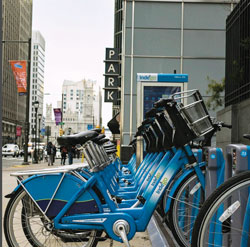Monmouth University has several societal and intercultural clubs and groups that support students and equip students to support others. This includes the Black Student Union (BSU), Latin American Student Organization (LASO), the Pride Club, and a lesser known, but equally important affiliation, the Black and African Diaspora Forum United (BADFU), a faculty group on campus that advocates for the rights of African Americans on and off campus.
According to Monmouth’s website, BADFU’s mission statement states, “Black and African Diaspora Forum United (BADFU) is an organization of Black/African American faculty, and their allies, at Monmouth University specifically concerned with the unique challenges of Black/African American academics at predominantly white institutions of higher education. We are open to all faculty, staff, and personnel working at Monmouth University interested in identifying issues specific to the Black Diaspora experience in academia and advancing equitable opportunities for Black and African Diaspora faculty in the classroom, administration, and the institution as a whole.”
Asia Jones, a senior and member of BSU loves the idea of having this type of body around her. “To have this community around me would mean a great deal as far as academic support. Attending a majority white college can weigh heavy at time.”
BADFU, formed in 2020, is run by several faculty members including, Julius Adekunle, Ph.D., Jason Adolf, Ph.D., Melissa Brzycki, Ph.D., Nikita Burrows, Ph.D., David Julius Ford Jr., Ph.D., LCMHC, LPC, NCC, ACS, and several other professors. BADFU has held several events in the past such as Dr. Bernice A. King, youngest child of Dr. Martin Luther King Jr., political and social justice advocate and CEO of the King Center for Nonviolent Social Change in Atlanta, Georgia, talked to students in a forum-like event at Pollak Theatre.
The Union had several goals which included, according to monmouth.edu, “Identifying institutional practices that have had a detrimental impact on Black and African Diaspora members of the University community, and working with administration and faculty constituencies to effect changes in these practices,” to “Support the increase of faculty, students, and staff of Black/African American descent in the classroom and beyond, and to “Serve as a resource to the institution on matters related to the Black and African Diaspora experience while providing advice through regular dialogue with key stakeholders at the university.”
Claude Taylor, Director For Academic Transition and Inclusion and member of BADFU, commented, “BADFU emerged to provide valuable space and for faculty who identify as Black, African American, or identify as part of the African diaspora to support each other, learn from each other, deliberate over issues and challenges related to working in higher education and also welcome faculty allies to join the dialogue around collective anti-racism efforts.”
Due to several factors including a lack of safe spaces, biased evaluations, unchecked microaggressions, unequal work distribution, and a lack of support from the schools they work at and from their coworkers, in the US only six percent of faculty at universities are Black or of African descent. Ninety-six percent (total of 5.76 percent) of these are at historically black college universities (HBCUs) according to a study conducted by Tyrell Connor, an Associate Professor of Sociology and the Director of the Criminology Program at the State University of New York in New Paltz, and member of the American Sociological Association. Additionally this 2023 study found that due to these overwhelming conditions, only 55 percent of black faculty (total of 3.3 percent) are satisfied with the diversity and inclusion efforts provided at the universities where they teach.
BSU Vice President Amani Adelekin, a junior music industry student, continues to show support for this faculty group, “As a black woman, it would mean a lot to me to have such an intentional group such as this to be a more formal outlet for expressing personal concerns about my school experience. Going to a predominantly white institution, there are experiences that cannot be fully empathized with unless shared with someone who has that unique experience. It is so necessary.”
Taylor commented, “I believe members of BADFU would welcome student organization collaborations and student program consultation with any students interested in advancing equity and anti-racism dialogues.”
Friday, July 26, 2024



